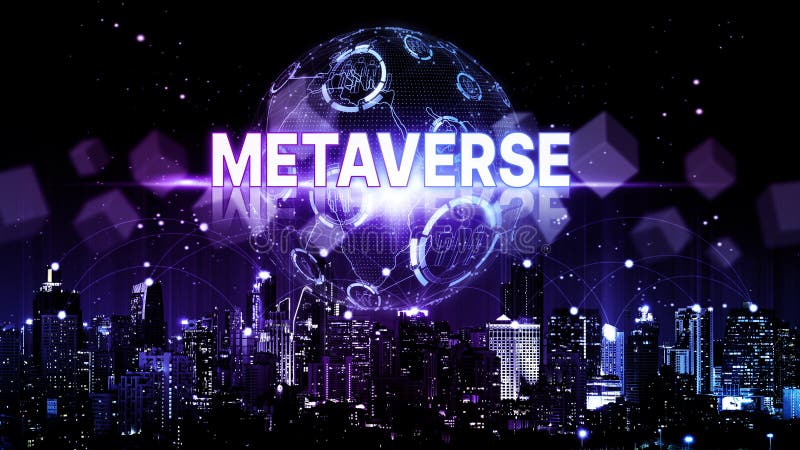Metaverse
SKT with Global Telcos to Expand Metaverse Platform in US, Europe and Southeast Asia
On February 27 at MWC Barcelona 2023, South Korean network operator SK Telecom (SKT) signed a memorandum of understanding (MOU) with Deutsche Telekom and T-Mobile US to jointly explore opportunities for expanding its metaverse platform ifland into Germany and the U.S.

Image Credit: SKT
The three companies will begin to conduct market tests in the U.S. and Germany in the second quarter of this year, with the main goal of the trials being to try “more diverse metaverse services in Europe and the U.S.”
SKT, Deutsche Telekom and T-Mobile US will also produce content tailored to local preferences, and will jointly promote the metaverse offering.
The ifland platform is also set to be made available to more countries in South East Asia, and the telco has agreed a partnership with its Malaysian partner CelcomDigi to boost its ifland user numbers in the country and develop new business models. It will also be made available to all 11 subsidiaries of Axiata operating in the ASEAN (Association of South-east Asian Nations) and South Asian regions, including Malaysia, Indonesia, Sri Lanka, Cambodia, Bangladesh and Nepal.
SKT and Axiata also plan to develop “metaverse platform-related business models” and create business opportunities based on artificial intelligence (AI) to enhance the competitiveness of these models.
By expanding its metaverse service into the Southeast Asian market, where Korean culture such as K-content is gaining popularity, SKT expects to expand ifland’s services and develop new business opportunities.
“As we advance into the global market with our metaverse platform ifland, major telecommunications companies in each country and region play an important role as our partners,” said Ryu Young-sang, CEO of SKT. “Going forward, we will continue to work closely with diverse global companies to expand the scope of our metaverse service.”
“The collaboration between the leading Malaysian telecoms operator serving more than 20 million customers and global ICT leader SKT will set the stage for the nation’s metaverse development, and drive growth and digitalisation within the digital economy,” said Datuk Idham Nawawi, CEO of CelcomDigi. “We look forward to working together on leveraging innovative technologies and practices particularly in virtual spaces to develop and deliver a wider range of innovative solutions for our customers and Malaysian businesses.”
“Axiata is deeply committed to leveraging emerging technologies towards the inclusive advancement of Societies and Economies across Asia,” said Dr Hans Wijayasuriya, CEO of Axiata. “We are proud to partner with SKT and the ifland platform and consider the partnership a significant component of our participation in the metaverse going forward.”
SKT pointed out that each of the three operator partners has more than 100 million customers, giving it a solid foundation on which to expand the international impact of ifland. The company’s CEO, Ryu Young-sang, pointed out that partnering with major telcos “in each country and region” plays a key role in advancing ifland’s influence, so it plans to continue working closely with global companies to broaden the scope of the service.
SKT’s metaverse platform launched in June 2021 and after an initial collaboration with Deutsche Telekom, it aggressively moved to global expansion across North America, Europe, the Middle East and Asia in November 2022.
References:
https://www.sktelecom.com/en/press/press_detail.do?idx=1560
SK Telecom launches its metaverse platform ‘ifland’ in 49 countries and regions
NTT Docomo will use its wireless technology to enter the metaverse
SK Telecom launches its metaverse platform ‘ifland’ in 49 countries and regions
SK Telecom (“SKT”) today announced that its metaverse platform ‘ifland’ simultaneously launched in 49 countries and regions throughout the world. With the global launch of ifland, SKT will actively utilize K-pop content, develop attractive content with overseas partners, and strengthen communication features to shape ifland into a global leading social metaverse platform.
The global version of ifland supports English, Chinese (Traditional Chinese, Simplified Chinese) and Japanese, and is available for both Android and iOS smartphone users. The existing ifland app will be upgraded to the new global version. For instance, the app will automatically activate in the Korean mode when accessed from Korea, and the global mode when accessed from overseas countries.
This global expansion of ifland comes after SKT launched its existing Korean language service in July 2021. Since then, it has experienced 8.7 million downloads in its first year of operation. As of October 2022, Ifland had 12.8 million users.
Under the slogan, “The New Way of Socializing,” ifland will deliver a differentiated communication experience within the metaverse.
SKT will effectively expand ifland’s global reach through partnerships with major telecommunications companies in each continent. The company is working with e& (formerly known as Etisalat Group) in the Middle East, Africa and Asia, and Singtel in South East Asia.
On November 18, 2022, SKT signed a memorandum of understanding (MOU) with NTT Docomo, the largest mobile operator in Japan, to cooperate in areas of content, technology and service to further advance their metaverse services. Through the MOU, the two companies will forge strategic partnership in three key areas –metaverse, mobile network infrastructure and media business. They will also create greater synergies by cooperating with other SK ICT affiliates like SK Hynix and Contents Wavve (a joint venture between Korean terrestrial broadcasters KBS, MBC, and SBS and SKT).
First, SKT and NTT DOCOMO will work together in the areas of content, technology and service to further advance their metaverse services. SKT has been operating its metaverse service ‘ifland’ since July 2021, while NTT DOCOMO launched its metaverse service in March 2022.
Partnership discussions with other telecommunications companies are also underway. Together with its overseas partners, SKT plans to develop specialized features tailored to each different region. They will also promote various metaverse-related events and business cooperation, including joint production of popular local content.

Moreover, SKT plans to offer content targeting the “MZ generation (Millennials and Generation Z)” through partnerships with diverse players including overseas universities and international brands.
Early this month, SKT signed a memorandum of understanding (MOU) with Thailand’s Bansomdejchaopraya Rajabhat University (BSRU) and Korea’s Dong-ah Institute of Media and Arts (DIMA) – which is providing a variety of programs including ‘Teen Teen Audition’ in ifland since the beginning of this year – to create a global metaverse campus. SKT will actively support BSRU and DIMA to overcome the limitations stemming from the physical distance between the two schools through ifland.
In addition, the company is working with Birger Christensen, a Copenhagen-based fashion company with over 150 years of history, to launch digital skins for avatars in ifland within this year to enable the MZ generation to better express themselves.
SKT has also updated key features of ifland. The company opened a global lounge within ifland to help those new to the metaverse to experience the new world with greater ease, and introduced avatars of many different colors.
In addition, to facilitate communication between hosts and participants of gatherings in ifland, SKT applied features like ‘one-on-one direct messaging’ and ‘3D speech bubble.’ ‘Live voting’ feature was also introduced to check the opinions of participants in real time, and ‘ifme motion sharing’ feature was adopted to apply the user’s facial expressions to his/her avatar.
To celebrate the global launch of ifland, SKT will be showcasing a wide variety of live K-pop content every week. Original metaverse K-pop content titled “The Fan Live Talkon” will target K-pop fans overseas, with over 50% of content provided in English. Every week, ifland will offer live content related to K-pop – e.g. auditions for K-pop trainees and nurturing of K-pop idols – for global fans to enjoy.
Within this year, through ifland’s SNS account, SKT plans to hold events to give out diverse artists’ goods and gifts to overseas users who participate in the meet-ups of K-pop content.
Meanwhile, ifland has surpassed 12.8 million of cumulative users as of October 2022, which represents a four-fold increase compared to 3 million early this year thanks to differentiated content offerings like original metaverse content.
“Since its launch in Korea in July 2021, ifland has grown rapidly to become the best social metaverse in Korea by attracting users of diverse age groups as well as many different organizations,” said Yang Maeng-seok, Head of Metaverse Office at SKT. “Now, we will go beyond Korea to expand our reach in the global market to take customers metaverse experience to the next level.”
List of countries in which ifland launched:
Argentina, Azerbaijan, Belgium, Brazil, Cambodia, Canada, Chile, Denmark, Deutschland, Finland, France, Ghana, Greece, Hong Kong, India, Indonesia, Ireland, Italy, Japan, Jordan, Kenya, Lebanon, Macau, Malaysia, Mexico, Myanmar, New Zealand, Norway, Palau, Poland, Portugal, Qatar, Rwanda, Singapore, Spain, Sri Lanka, Sweden, Switzerland, Taiwan, Thailand, the Dominican Republic, the Netherlands, the Philippines, the United Arab Emirates, the United Kingdom, the United States, Tunisia, Turkey, Vietnam
References:
https://www.sktelecom.com/en/press/press_detail.do?idx=1550
https://www.sktelecom.com/en/press/press_detail.do?idx=1549¤tPage=1&type=&keyword=
TIP launches Metaverse-Ready Networks Project Group
Is AI the driving force behind the metaverse?
CB Insights: The Metaverse Explained & Companies Making it Happen
NTT Docomo will use its wireless technology to enter the metaverse
Credit Suisse: Metaverse to push data usage by 20 times worldwide by 2032
TIP launches Metaverse-Ready Networks Project Group
The Telecom Infra Project (TIP) has formed a new project group that, it says “addresses one of the central topics in today’s telecommunications industry, metaverse-ready networks… The TIP Metaverse-Ready Networks Project Group’s primary objective is to accelerate the development of solutions and architectures that improve network readiness to support metaverse experiences.”
Meta Platforms, Microsoft, T-Mobile US, Telefónica and Sparkle will be the initial co-chairs of the project group.
Alex Harmand, head of network platforms at Telefónica and co-chair of the new group, stated: “This new group will enable operators to address the exciting opportunities that the metaverse is creating in both the consumer and enterprise segments. Telefónica is looking forward to collaborating to define the network capabilities and associated APIs needed to enhance metaverse services. The TIP community is the perfect environment for this initiative as it will allow us to leverage multiple current project groups, such as OpenWIFI, OpenRAN, Open Optical and Packet Transport, to deliver end-to-end architectures and solutions that we will then test in Telefónica’s and other TIP Community Labs.”
Ron Marquardt, Vice President of Advanced Technologies & Innovation at T-Mobile said: “As one of the major upcoming revolutions in the telco industry, the metaverse has to be built through industry collaboration. We want to encourage other CSPs, technology makers and content creators to join us in this journey.”
Rashan Jibowu, Product Manager at Meta Platforms and Co-Chair of the MRN Project Group said: “The metaverse is the next chapter of the internet. In the early stages of its development, it’s critical that we work together as an industry to determine what it means for networks to be “metaverse-ready,” and what we need to do collectively to get there. We look forward to collaborating with the TIP community to lay this important groundwork and build toward our common goal of bringing the metaverse to life.”
Fabio Panunzi Capuano, Executive Vice President Business Development at Sparkle and Co-Chair of the MRN Project Group said: “The telecom industry will act as a key enabler for the metaverse by providing the performing network architectures and services that will support growing bandwidth requests and quality of experience generated by new business models. The Metaverse-Ready Networks Project Group, as one voice of the industry, has the challenging task to define new connectivity requirements supporting the end-to-end metaverse experience and Sparkle, with its assets and experience, is at the forefront in cooperating to shape the future.”
Ricardo Villarreal, Director of Product Management at Microsoft, Azure for Operators and Co-Chair of the MRN Project Group said: “The metaverse might be in a nascent state, but it is imperative to start building today the networks needed to realize the promise of a complete convergence of our physical and digital lives. Cross-industry collaboration is the only way to achieve this.”
The Project Group will be hosting its first open doors session at Fyuz in Madrid Oct 25-27th.
TIP Launches Metaverse-Ready Networks Project Group – Telecom Infra Project
Is AI the driving force behind the metaverse?
The metaverse is expected to become the next big breakthrough in the Internet’s evolution, with seemingly endless potential to transform how we live, transact, learn, and even benefit from government services.
Most current definitions for the metaverse include a long list of technologies and principles.
One definition tech experts seem to agree on is “an online 3D virtual world in which real people interact in real time to do an unlimited variety of virtual activities such as work, travel and play, all supported by its own digital economy.”
But making the metaverse a functional – albeit virtual – reality still requires significant advances in many different underlying technologies.

In some cases, these essential innovations are already underway. Meta (previously Facebook), for instance, introduced an AI supercomputer in January 2022, claiming a range of uses from ultrafast gaming to instant, accurate and simultaneous translation of large amounts of text, images and videos. The computer will also be key in developing next-generation AI models and become a foundation which future metaverse technologies can look to and build upon.
At the same time, consumer devices such as virtual reality (VR) headsets or smart glasses still fail to capture or transmit the full metaverse experience despite being available on the market today. New devices will need to be designed to provide a truly seamless experience for metaverse users. Another Meta invention, the haptic glove, is designed to enable users to touch and feel virtual objects in the metaverse.
Experts predict that the metaverse will be based on seven essential technologies: 5G communication, extended reality, brain-computer interfaces, cloud computing, blockchain, digital twins, and artificial intelligence.
Of these emerging technologies, AI may be the most crucial piece of the metaverse puzzle thanks to its potential to enable the metaverse to scale.
Deep learning-based software will likely power most interactions autonomously, with chatbots along with other types of natural language processing (NLP) technologies supporting all kinds of exchanges in this new extended reality space.
AI will also enable machines behind the metaverse to not only understand user inputs, from text to images and even videos, but also to respond correctly regardless of the user’s input language. However, this will require huge amounts of data and training such advanced NLP models is likely to take years.
In metaverse development, AI is not only a necessary technology in the areas of computer vision and natural language processing, but also in VR and augmented reality (AR). For example, in AR technology AI is used in camera calibration, detection, tracking, camera pose estimation, immerse rendering, real-world object detection, virtual object detection, and 3D object reconstruction, helping to guarantee the variety and usability of AR applications.
Eventually, most 3D images, animations, and speech in the metaverse will likely be generated by AI. Machine learning models could also be used to automate smart contracts, distributed ledgers and support other blockchain technologies to allow virtual transactions.
AI technology is also expected to help expand the metaverse by supporting object detection, improving rendering, and enabling cybersickness control and measurement. However, despite its promise and potential, the metaverse still has many challenges to overcome such as security risks and online abuse. Still, AI is likely to be among the technological tools that could be instrumental in overcoming those challenges.
To find out how current research is making the metaverse a reality, join ITU’s fourteenth academic conference: Kaleidoscope 2022: Extended reality – How to boost quality of experience and interoperability, taking place in Accra, Ghana, from 7 to 9 December at the Ghana-India Kofi Annan Centre of Excellence in ICT.
References:
Credit Suisse: Metaverse to push data usage by 20 times worldwide by 2032
Even moderate usage of metaverse will increase global data usage by 20 times over a decade and firms such as India telcos Bharti Airtel and Reliance Jio are poised for “suitable benefits” from this surge, as per a Credit Suisse report released on February 17th. However, the Metaverse technology might not be mature till 2030.
“Internet traffic is already 80 percent video and has been growing at a 30 percent compound annual growth rate (CAGR). Our team projects that even modest metaverse usage could drive a further 37 percent CAGR in the next decade to 20x current data usage,” the Credit Suisse report said.



